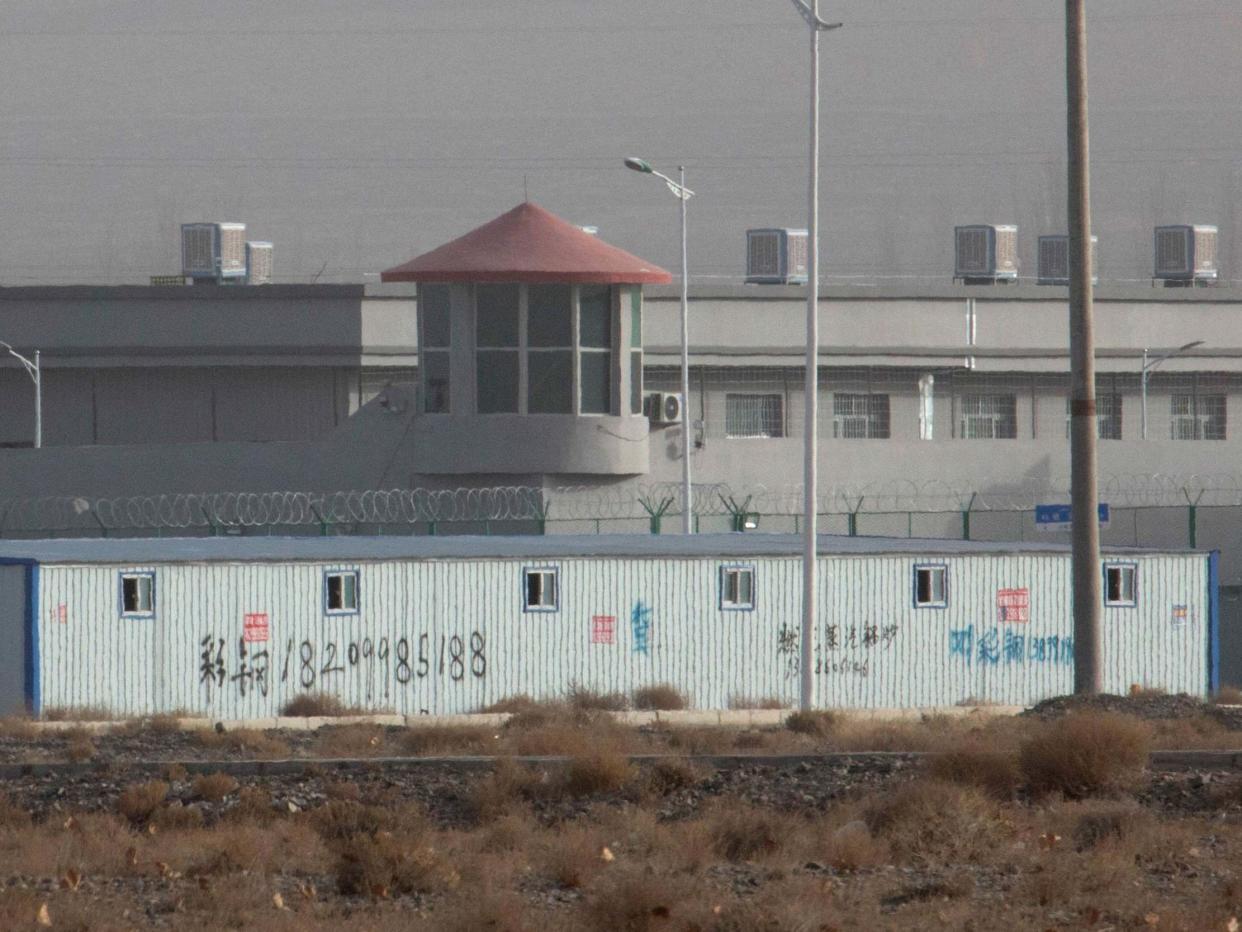China claims without providing evidence that all Muslims it detained in re-education camps have ‘graduated’ and are happy

China has issued a strident defence of its Muslim “re-education camps” in the face of growing international condemnation, with a top official claiming everyone held there has now “graduated” and is happy.
Uighur Muslims and ethnic Kazakhs who had been detained and made to study Mandarin, law, vocational skills and deradicalisation at the indoctrination camps had found “stable employment and improved the quality of their life” with the help of the government, insisted Xinjiang state governor Shohrat Zakir, himself a Uighur, on Monday.
Nonetheless, he suggested the Communist Party would continue its re-education efforts, and did not say whether those deemed graduates were now free to resume ordinary lives. Groups such as village officials, farmers and unemployed high school graduates would still be enrolled in programmes that allow them to “come and go freely”, Mr Zakir said, calling those courses “daily, routine, normal, and open educational training”.
The PR blitz came after the US House of Representatives voted to sanction Chinese officials over the campaign of extrajudicial detentions and brainwashing that has swept Xinjiang province in recent years.
A vast surveillance apparatus has been installed across the province, reportedly including facial recognition, prayer tracking with QR codes and the collection of children’s DNA. In some cases Communist Party officials have been lodged with Muslim families.
However, Uighurs and other predominantly Muslim ethnic minorities from the region said their family members continued to be arbitrarily detained in camps and prisons.
“Where is my sister Dr Gulshan Abbas then?,” tweeted activist Rushan Abbas. “Why isn’t she coming home? Why can’t her two daughters communicate with her? No one has any information on her whereabouts since September 2018.”
Officials have repeatedly avoided saying how many people were in the centres but insisted the figure was far less than the reported 1 million. Mr Zakir said on Monday the figure was “dynamic”.
Mr Zakir’s comments made it difficult to evaluate the suggestion that all detainees had now been released, Human Rights Watch told the Wall Street Journal, because he did not give details about how many camps there were and where the “graduates” had gone. “The government had repeatedly denied that these camps existed, so what it says now is not very credible,” researcher Maya Wang told the paper.
Amnesty International called for China to provide proof to back up Mr Zakir’s claims. “If Uighurs and other predominantly Muslim minorities are really being released from these repressive detention camps, then the onus is on the Chinese government to prove it,” said Nicholas Bequelin, a regional Amnesty director.
“The government should, at the very least, allow independent UN experts to assess the situation, and allow Uighurs and members of other ethnic minorities to freely communicate with their relatives overseas. Until now, this is something the authorities have repeatedly refused to do.
“As ever, it’s almost impossible to independently verify the Chinese government’s claims given the extreme constraints on reporting in the region and the authorities’ attempts to cut it off from the outside world.”
While Beijing has described the detentions as a form of vocational training, classified documents recently leaked to news organisations revealed a deliberate strategy to imprison people from minority ethnic groups even though they had not committed any crimes.
Reports suggest they have been made to pledge allegiance to the Communist Party and denounce Islam. Official documents leaked last month showed that detainees were forced to adhere to strict rules. “The students should have a fixed bed position, fixed queue position, fixed classroom seat, and fixed station during skills work, and it is strictly forbidden for this to be changed,” one said.
Guards were told to “implement behavioural norms and discipline requirements for getting up, roll call, washing, going to the toilet, organising and housekeeping, eating, studying, sleeping, closing the door and so forth”.
Governments around the world have called on Beijing to allow UN investigators access to the facilities, which it has said are necessary to combat terrorism.
Additional reporting by agencies
Read more
China’s military ‘using scientific research to push into Arctic’

